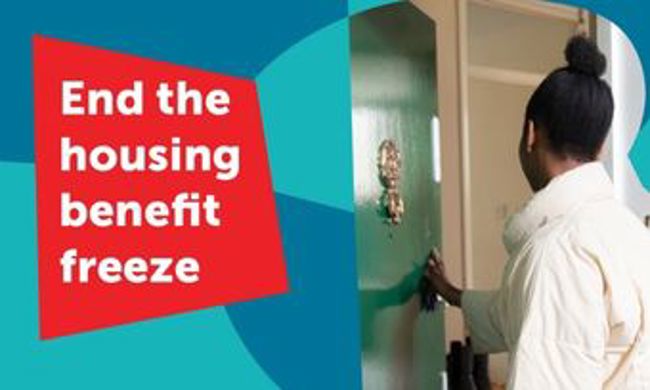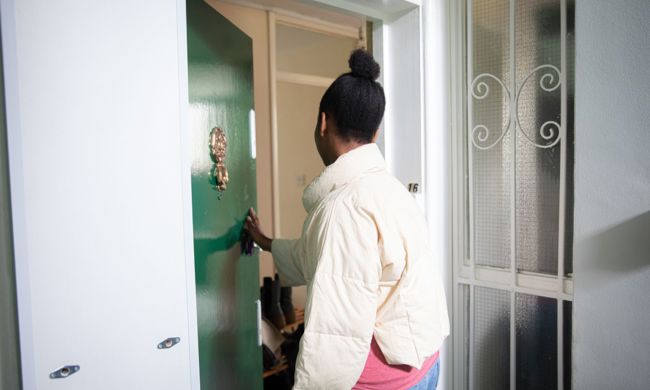Housing benefit has traditionally played an important role in preventing homelessness. It has saved people from losing their homes during a period of illness or unemployment and helps those on low or no incomes pay their rent.
However, while rents are at record highs, housing benefit has remained frozen since 2020. This means that in many parts of the country, housing benefit no longer covers the true cost of renting.
Combined with the cost of living crisis, this is pushing people into homelessness. Without action from the UK Government, more and more people will be pushed to the brink and into homelessness.
What needs to change
Across Great Britain we are calling on the government to:
- Ensure that housing benefit for people renting from private landlords covers people’s rent in all parts of the country. Read more about Local Housing Allowance.
- Review the benefit cap in light of the impact it has on homelessness. Read more about the benefit cap.
Local Housing Allowance
Local Housing Allowance is housing benefit paid to people who rent from private landlords.
At the start of the pandemic, following campaigning from Crisis and other organisations in the homelessness sector, Local Housing Allowance was raised to cover the cheapest third of rents in an area.
But since then rents have risen rapidly in many parts of the country, while Local Housing Allowance has remained frozen. This means more and more people now have a shortfall to pay or are unable to find a home to rent that they can afford. This is unacceptable.
We are calling on the Government to raise Local Housing Allowance so that it covers the true cost of rent in all parts of the country.
We collect evidence, published in the Homelessness Monitor, on the impact of housing benefit reform on homelessness and work with MPs and peers to raise these issues in parliament. We are also working in partnership with Zoopla to highlight the growing shortfalls people are facing between housing benefit rates and the actual cost of rents.
Shared Accommodation Rate
The Shared Accommodation Rate is the lowest level of Housing Benefit for people who rent from private landlords. It is intended to cover the cost of a room in a shared property.
Changes to Housing Benefit rules mean that more people are restricted to this very low rate. In 2012 the Westminster Government increased the upper age limit from 24 to 34. This puts pressure on a very limited supply of affordable shared properties. As a result, homelessness services across the country are finding it difficult to find suitable housing for people experiencing homelessness who are under 35.
Some people are exempt from the Shared Accommodation Rate, including some people receiving disability benefits. We want the Westminster Government to extend these exemptions to make sure the Shared Accommodation Rate does not make it harder for people experiencing homelessness to find a secure and stable home, or put people at risk of homelessness.
Our Sharing Solutions programme has funded projects which support people in shared accommodation rented from private landlords. We support local authorities and housing associations with practical advice on how they can support shared tenancies. Visit our Housing Centre for more information.
Benefit cap
The benefit cap limits the overall amount that people can claim if they’re unemployed by reducing their housing benefit. Currently, the cap is set at £23,000 per year for families in Greater London and £20,000 per year for families living outside of London. For single adults benefits are capped at £15,410 per year in Greater London and £13,400 for those living outside of London.
Through our frontline services, we are seeing people across the country being impacted by the benefit cap. As the cost of living rises the benefit cap is making it more and more difficult for people to move out of homelessness.
In the 2022 Autumn Statement, the Government announced that the benefit cap will be increased by inflation in April 2023. This is very welcome, as up until now, the cap has been set at the same level since 2016, despite increases in the cost of living.
However, the cap remains a significant barrier preventing many of the people Crisis is supporting from moving out of homelessness.
We want the UK Government to review the purpose of the cap and ensure that it does not increase people’s risk of homelessness or make it harder for people to move out of homelessness and find a safe and settled home.



